History is our Playground
by Alex
When I’m not making a coital tour of the galaxy as Commander ‘Big-Man’ Shepard, or hoarding iron ingots as ‘Hawky’ the sneaky wood elf who is somehow the head honcho of every guild in Skyrim, I tend to be caught up studying history. As much as I’d love to say that this is entirely out of choice, it’s more to do with me simultaneously trying to get a degree while putting off real life until my rightful lottery jackpot is awarded. With my final year dissertation looming over me, and procrastination in short supply, I began to wonder how things might have been different if, instead of choosing to write about monks in tenth-century Germany, I’d instead written about videogames and their relationship with history. Here are a few of my insights:
It’s actually quite surprising just how few games make direct use of historical settings. Assassin’s Creed is the most obvious title that springs to mind (and we’ll get to that later) but apart from this series, and numerous strategy titles, videogames have been rather sparing in their use of history. Unless the game is set in World War II, when a liberal spraying of Nazis and swastikas is about all that can be hoped for in terms of historical accuracy. Instead, many developers prefer to create unique worlds, based on one or more historical periods or ideas.
Take the Elder Scrolls series, for example – with elves, vampires, giant mudcrabs and daedric gods, it’s hardly rooted in historical fact. However, you don’t have to have studied much history to know that Imperials are basically Romans, Nords are basically Vikings, and Bretons are real people from Brittany in France. In fact, so much of Skyrim is based on (or just blatantly copied from) Norse legend that, at times, the game feels more like a Viking Sim than a fantasy adventure. This Nordic inspiration can be seen in everything from the names of enemies (draugr are undead creatures in Norse mythology) to the political hierarchy of Skyrim (jarl is the Scandinavian word for earl).
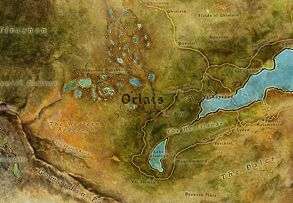 It’s not just Bethesda who have adapted history to create their own worlds. Dragon Age’s Orlaise is based on France (as Leliana’s accent will testify), while the second game’s struggle between Templars and Mages holds parallels with the Medieval Inquisition and Reformation. Even when direct comparisons aren’t evident, fantasy games tend to be set in a generic Middle Ages world, where lords live in castles, noble knights guard the roads, and spell and sword are the weapons of choice. This imagery of wild forests, little market towns and chivalrous heroes is what many people think of when asked about the Middle Ages, and provides a suitable context for numerous adventures with few historical parallels.
It’s not just Bethesda who have adapted history to create their own worlds. Dragon Age’s Orlaise is based on France (as Leliana’s accent will testify), while the second game’s struggle between Templars and Mages holds parallels with the Medieval Inquisition and Reformation. Even when direct comparisons aren’t evident, fantasy games tend to be set in a generic Middle Ages world, where lords live in castles, noble knights guard the roads, and spell and sword are the weapons of choice. This imagery of wild forests, little market towns and chivalrous heroes is what many people think of when asked about the Middle Ages, and provides a suitable context for numerous adventures with few historical parallels.
Taking a familiar setting, which has a historical precedent and is easily recognised by the vast majority of people, is also fairly common in videogames. Think of Red Dead Redemption; John Marston’s world is probably the epitome of most people’s perception of the old American West. It doesn’t matter that elements are historically inaccurate, or that the locations don’t exist in real life – the setting perfectly encapsulates modern attitudes about the period. The narrative, meanwhile, does a good job of highlighting genuine historical themes of the era, such as the introduction of new technology and the development of federal law.
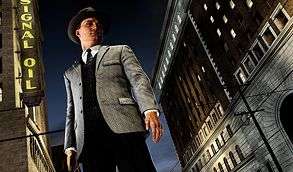 L.A. Noire is a similar example. Set in 1940s’ Los Angeles, many of the game’s landmarks and locations appear as they would have in the 40s. Elements such as the music, clothing and language all add to the feel, while much of the action is of the developer’s own invention. While professional historians could no doubt find countless inaccuracies (the concrete barriers that block the routes out of the city weren’t invented until 1968, for example), it’s important to remember that videogames are entertainment; striving for meticulous historical accuracy isn’t synonymous with creating an interesting, enjoyable experience.
L.A. Noire is a similar example. Set in 1940s’ Los Angeles, many of the game’s landmarks and locations appear as they would have in the 40s. Elements such as the music, clothing and language all add to the feel, while much of the action is of the developer’s own invention. While professional historians could no doubt find countless inaccuracies (the concrete barriers that block the routes out of the city weren’t invented until 1968, for example), it’s important to remember that videogames are entertainment; striving for meticulous historical accuracy isn’t synonymous with creating an interesting, enjoyable experience.
This is particularly true in the case of strategy games. The Total War series does an admirable job of presenting worlds that feel historically correct. However, from the very moment I decide to send my king off by himself into a barbarian ambush, so that the heir-apparent with a better command score can take over, historical accuracy goes out the window. The series exists for players to dominate medieval Europe/Japan/the eighteenth-century world – making the military and political mechanics historically accurate would not only make this impossible, but would prevent the games from being fun. People don’t want to watch history unfold exactly as it did, occasionally clicking a button to create the illusion that things happened because of their intervention. They want to build massive armies and outwit their opponents.
It’s not just the actual premise of such strategy games which is at odds with history. In Medieval: Total War for example, everything is far simpler than it would have been in reality. It’s just impossible for the developer to represent all of the unique factions, political figures and competing elements of society, whilst still keeping the gameplay fresh and exciting. Imagine trying to wage war against France (which wouldn’t really be France, but would actually be an assortment of duchies, counties and petty kingdoms) whilst also having to keep all of your knights, nobles and bishops happy, as well as having to deal with five invading Welsh princes and demands from Northumbria for independence. It’s enough hassle just reading about it.
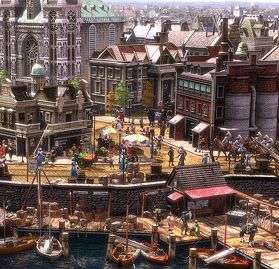 Europa Universalis makes a good attempt at combining strategy with historical accuracy. The flip-side of this is that EU is less popular than simpler games such as the Total Wars and Age of Empires. While historians might delight at seeing Germany divided into numerous tiny principalities, all under the rule of one emperor, most people are happy to just play as the Holy Roman Empire, and to have fun whilst doing it, without having to worry about the devilish details.There’s always going to be tension between creativity and historical accuracy, and getting the balance right can make or break a game. Nobody wants to get a game over every five minutes because Ezio died of the plague… again – just as nobody would really enjoy using a jet-pack to get to the top of St. Paul’s. The popular perception of medieval Europe is more than enough for most people and, judging by the continued success of the Total War series, any historical inaccuracies haven’t seemed to hurt.
Europa Universalis makes a good attempt at combining strategy with historical accuracy. The flip-side of this is that EU is less popular than simpler games such as the Total Wars and Age of Empires. While historians might delight at seeing Germany divided into numerous tiny principalities, all under the rule of one emperor, most people are happy to just play as the Holy Roman Empire, and to have fun whilst doing it, without having to worry about the devilish details.There’s always going to be tension between creativity and historical accuracy, and getting the balance right can make or break a game. Nobody wants to get a game over every five minutes because Ezio died of the plague… again – just as nobody would really enjoy using a jet-pack to get to the top of St. Paul’s. The popular perception of medieval Europe is more than enough for most people and, judging by the continued success of the Total War series, any historical inaccuracies haven’t seemed to hurt.
I’ve saved Assassin’s Creed until last because it’s one of the most obvious, and interesting, examples of a series with a historical setting. In some ways the series excels: many of the landmarks are spot-on, and the descriptive passages in the codex are a nice way of adding real historical context to proceedings. Many of the characters are also true to the era, and Ubisoft deserve praise for selecting assassination targets who died (often mysteriously) at about the same time as their in-game assassination. This attention to detail combines to make the worlds of Crusader Palestine and Renaissance Italy feel believable. Obviously this is ruined by a load of scientific mumbo-jumbo, some scandalous assumptions about how DNA works, and a simply terrible ‘plot-twist’ that revolves around the existence of a race of super-powered creator-beings. Perhaps setting a game in an historical context, accompanied by a fairly rational and well-executed storyline, but without including a pseudo-scientific explanation and the world’s most boring man was too much to ask for.
Despite first impressions, it’s evident that, in some form or other, history has had a tremendous impact on video games. In addition to this, the virtual worlds that we explore have influenced our own ideas and assumptions about the past. If you got this far without experiencing terrible flashbacks of your teenage history lessons, then congratulations – if there is one thing that can be said for sure about these kind of games, it’s that they make history part of something fun. I’m sure that, thanks to games such as Assassin’s Creed, Red Dead Redemption and the Total Wars, people know far more about history than before they fired up their consoles and PCs. This is surely a good thing, even if the flip-side is thousands of people believing that everything we do is the result of a global Templar conspiracy.The past can seem like a whole other world, just as foreign and bizarre as any fantasy or sci-fi setting. With thousands of years of history, there’s ample inspiration to be had and, in the meantime, I’ll just have to keep killing Templars and pretending it’s somehow relevant to my degree.
Last five articles by Alex
- RollerCoaster Tycoon: A Retrospective
- Beware The Hoarder
- History is our Playground
- Open World Problems
- Marginalised, Mistreated and Misunderstood: Video Games and the Fight for Recognition
















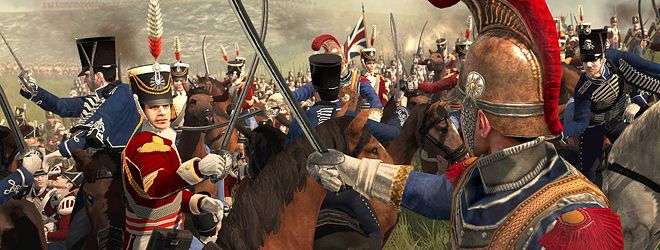
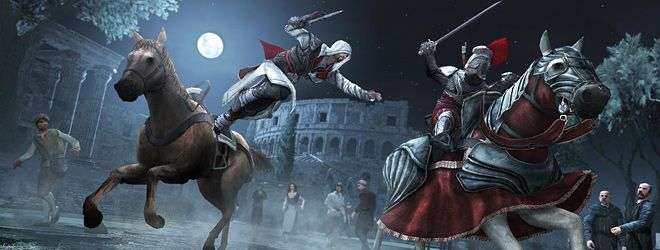





Loved this. Good job mate.
Top stuff. Read this with my breakfast but forgot to comment!
I think the problem for most devs is that, if they DO opt to go down the historical route, they’ll come under such close scrutiny by those who know the periods well, that they’d have to spend more time fact-checking than actually developing the game for fear of being called out on any slight oversights. I understand that, of course, but it would still be great to become entirely immersed in a game which is not only incredible to play, but historically accurate to the tiniest of details.
I’m sure that, one day, one brave developer will go out on a limb and throw a dedicated team at making sure everything they do is spot on, and we’ll then be able to lose ourselves in a virtual history. I hope that happens.
You have a great way with words, and as someone who loved history right up until he went to Uni and did something else, this article fascinated me. Well done, good sir!